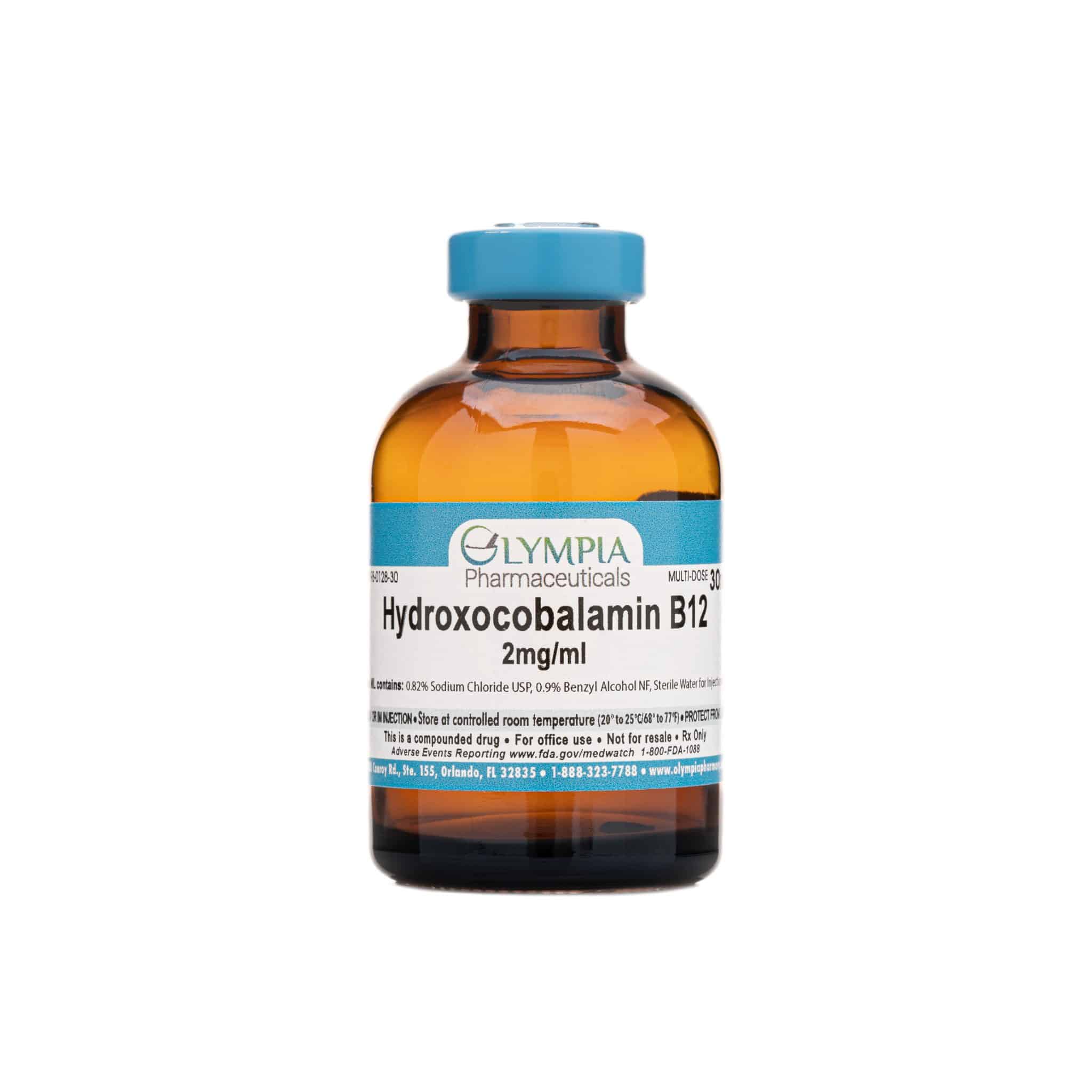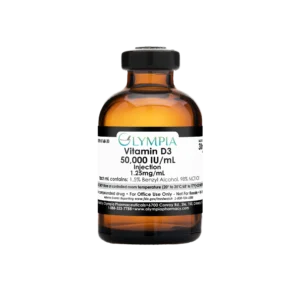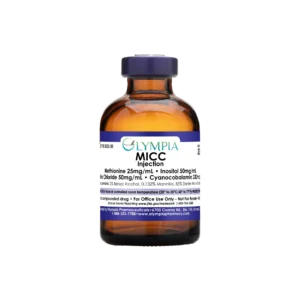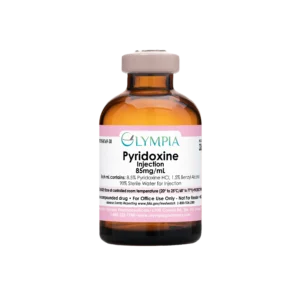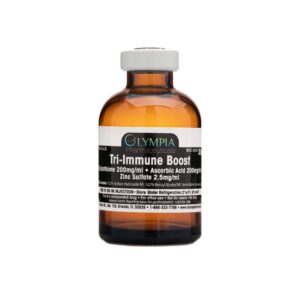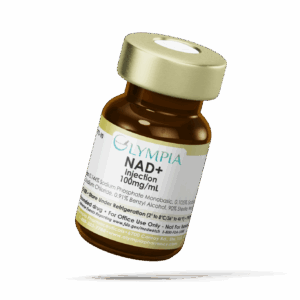Hydroxocobalamin Injection (B12)
Hydroxocobalamin, also known as vitamin B12, is a vitamin found in food and is also used as a dietary supplement.
Concentration
- 2mg/ml
Overview
Hydroxocobalamin is an injectable form of vitamin B12, a vitamin found in food and used as a dietary supplement. Vitamin B12 helps to utilize fats and carbohydrates for energy and make new proteins. It is important in the maintenance of our metabolism, blood cells, and nerve function. Most people get enough vitamin B12 in their diet, but some need supplementation. Certain health conditions such as intestinal or stomach problems, poor nutrition, cancer, HIV, pregnancy, old age, veganism and alcoholism can cause vitamin B12 deficiency. Low levels of vitamin B12 can lead to fatigue and anemia in milder cases. More serious deficiencies have the potential to impair heart and neurological function, leading to a wide range of serious symptoms, including but not limited to tinnitus, severe joint pain, memory problems, depression, anxiety, poor muscle function, ataxia and changes in reflexes. Infertility can also occur in individuals with insufficient B12. Early intervention and addressing deficiencies are key to maintaining healthy bodily function.
What Is Hydroxocobalamin B12 Prescribed For?
Hydroxocobalamin injections may be prescribed to patients with vitamin B12 deficiency
Other Uses
Hydroxocobalamin B12 helps the body convert fat and carbohydrates to energy and may be beneficial as part of a weight loss program.
Dosage, Concentration, Route of Administration
Dosage: Seek advice from an appropriately qualified and licensed physician, medical director, or other healthcare provider
Concentration: 2mg/ml
Route of Administration: IV/IM
Resources:
Precautions/Side Effects
Hydroxocobalamin injections are contraindicated in people with low blood potassium or allergies to vitamin B12 or cobalt. Before using this medication, speak with your doctor or pharmacist about your medical history, especially of low potassium, gout, blood disorders (polycythemia vera), eye disorders (Leber’s disease), or other vitamin or mineral deficiencies. Some products may interact with hydroxocobalamin. These include drugs affecting blood cell production (chloramphenicol, anticancer or HIV drugs) and other vitamin and mineral supplements (especially folic acid). Certain drugs may also interfere with lab tests for vitamin B12 levels. This may cause false test results. If you are taking any anti-infective drugs, such as amoxicillin or erythromycin, make sure to let laboratory personnel know prior to testing. If pregnant or breastfeeding, be sure to discuss the benefits and risks with your doctor.
Some common side effects include:
- – Pain at injection site
- – Mild diarrhea
- – Itching
- – Feeling of body swelling
- – Low potassium
- – High blood pressure
Storage
Store at controlled room temperate. Protect from light.
